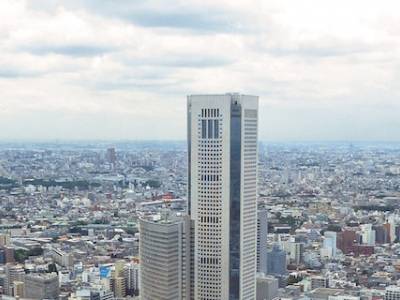http://www.businessweek.com/globalbiz/content/may2009/gb2009057_863933.htm?chan=globalbiz_special+report+--+asia+best+business+schools+2009_special+report+-+asia+best+business+schools+2009+
Yet for all that, it's difficult to make the case that Japan Inc. embraces employees with MBAs. On the contrary, many big companies still prefer to hire grads fresh out of college and mold them into the type of managers they want, rather than hiring B-school grads.
Corporate Japan doesn't seem convinced of the merits of MBAs. Many companies still have a lifetime employment system with pay and promotions based on seniority. That means MBA holders can't expect rapid progression or improved compensation.
But rather than encourage companies to use B-school grads more effectively, many companies have instead decided to stop paying for employee MBA programs. At Keio University, the first Japanese university to offer an MBA program in 1978, 65% of business degree students were sent by their companies in the late 1980s, compared with 35% today. "Many Japanese companies can't make really good use of MBA holders when they come back [to work],"
Given the above article, and your opinions on the matter, what is your opinion on Hitotsubashi's ICS MBA?
http://images.businessweek.com/ss/09/05/0508_asia_business_schools/12.htmHitotsubashi University (ICS)
Japan
Admission Rate: 35%
Class size: 60
Full-time program: One year
Part-time program: Two years
Annual tuition: $5,358
Average staring salary for graduates: $120,000
What intrigues me is the high salary rate despite 72% of the ICS MBA population being non-Japanese (combined with the article above). Is this good reason to believe that Hitotsubashi is succeeding in placing foreign students into Japanese companies? Is this evidence that Hitotsubashi is breaking away from the general mold of the typical Japanese MBA? Or is it just an indication that, rather than Japanese companies, foreign companies value Hitotsubashi and are whipping up their MBA students and paying them well? Their website indicates that about half work in Japan and the other half outside, so I don't really know what's going on. Hard to formulate a hypothesis on which group of employers is valuing the ICS MBA without much more information.
Figuring out who values the ICS MBA is important because, if i was to consider going there, I would like to know where I would likely end up. Their website does list the names of companies that hire their students, but it does not indicate how many students go where.
I can't find information on how many of these students are returning to their place of previous employment either. If the only reason why they are getting decent pay is because they were groomed for leadership by their previous employer, the high starting salary does not indicate how good the school is placing their students, only an indication of how valuable that person was to their previous establishment from the get go.
So what is your opinion of Hitotsubashi? Any explanation for why it's doing so much better than the typical Japanese MBA, despite the fact MBAs generally are not favourably looked upon in Japan? Is it because Hitotsubashi is a top 5 or so university in Japan?
http://www.businessweek.com/globalbiz/content/may2009/gb2009057_863933.htm?chan=globalbiz_special+report+--+asia+best+business+schools+2009_special+report+-+asia+best+business+schools+2009+
<blockquote>Yet for all that, it's difficult to make the case that Japan Inc. embraces employees with MBAs. On the contrary, many big companies still prefer to hire grads fresh out of college and mold them into the type of managers they want, rather than hiring B-school grads. </blockquote>
<blockquote>Corporate Japan doesn't seem convinced of the merits of MBAs. Many companies still have a lifetime employment system with pay and promotions based on seniority. That means MBA holders can't expect rapid progression or improved compensation.</blockquote>
<blockquote>But rather than encourage companies to use B-school grads more effectively, many companies have instead decided to stop paying for employee MBA programs. At Keio University, the first Japanese university to offer an MBA program in 1978, 65% of business degree students were sent by their companies in the late 1980s, compared with 35% today. "Many Japanese companies can't make really good use of MBA holders when they come back [to work],"</blockquote>
Given the above article, and your opinions on the matter, what is your opinion on Hitotsubashi's ICS MBA?
http://images.businessweek.com/ss/09/05/0508_asia_business_schools/12.htm
<blockquote>Hitotsubashi University (ICS)
Japan
Admission Rate: 35%
Class size: 60
Full-time program: One year
Part-time program: Two years
Annual tuition: $5,358
Average staring salary for graduates: $120,000</blockquote>
What intrigues me is the high salary rate despite 72% of the ICS MBA population being non-Japanese (combined with the article above). Is this good reason to believe that Hitotsubashi is succeeding in placing foreign students into Japanese companies? Is this evidence that Hitotsubashi is breaking away from the general mold of the typical Japanese MBA? Or is it just an indication that, rather than Japanese companies, foreign companies value Hitotsubashi and are whipping up their MBA students and paying them well? Their website indicates that about half work in Japan and the other half outside, so I don't really know what's going on. Hard to formulate a hypothesis on which group of employers is valuing the ICS MBA without much more information.
Figuring out who values the ICS MBA is important because, if i was to consider going there, I would like to know where I would likely end up. Their website does list the names of companies that hire their students, but it does not indicate how many students go where.
I can't find information on how many of these students are returning to their place of previous employment either. If the only reason why they are getting decent pay is because they were groomed for leadership by their previous employer, the high starting salary does not indicate how good the school is placing their students, only an indication of how valuable that person was to their previous establishment from the get go.
So what is your opinion of Hitotsubashi? Any explanation for why it's doing so much better than the typical Japanese MBA, despite the fact MBAs generally are not favourably looked upon in Japan? Is it because Hitotsubashi is a top 5 or so university in Japan?


-bbbf1.jpeg)


